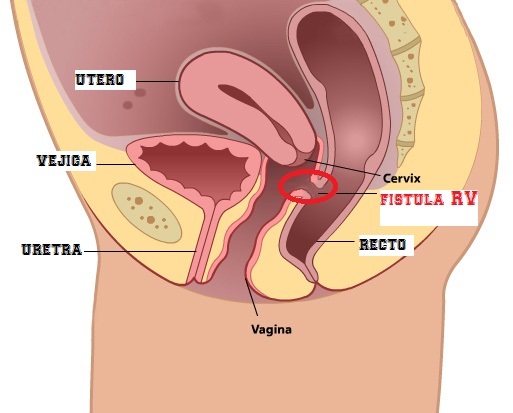
Causes: Obstetric injury i.e. during childbirth, prolonged labour, 3rd of 4th degree of perineal tear, inadequate repair, breakdown of repair or infection can lead to development of rectovaginal fistula.
It may also occur following in anterior midline perianal abscess which may burst into the vaginal opening. These are generally low fistulas.
Other causes are inflammatory bowel disease, rectal and gynecologic malignancies.
High fistulas usually are complications of low stapled colorectal anastomosis.
Classification of rectovaginal fistulas:
BASED ON LOCATION
Anovaginal fistula: Below the dentate line
Low fistula: Near vaginal opening and posterior fourchette
Mid-level fistula: Above posterior fourchette, distal to level of cervix
High fistula: Level of the posterior fornix
Complaints: Passage of gas or small quantity of stool through the vagina, pain while passing stools, continuous foul-smelling discharge from the vagina. Patients may also have recurrent vaginal or urinary infection.
Diagnosis: It is by complete evaluation of the anal and vaginal area. The induration of the tract is felt. MRI is used for high fistulas and also to access the sphincter defect.
Treatment: Surgical procedure is the management of rectovaginal fistula.
Local repairs for low or middle fistula which include transanal, vaginal and perianal procedures.
Abdominal repair for high fistula by laparoscopic or open abdominal surgery.
Excision of the fistula followed by layered repair.
Perineoproctectomy with layered closure.
